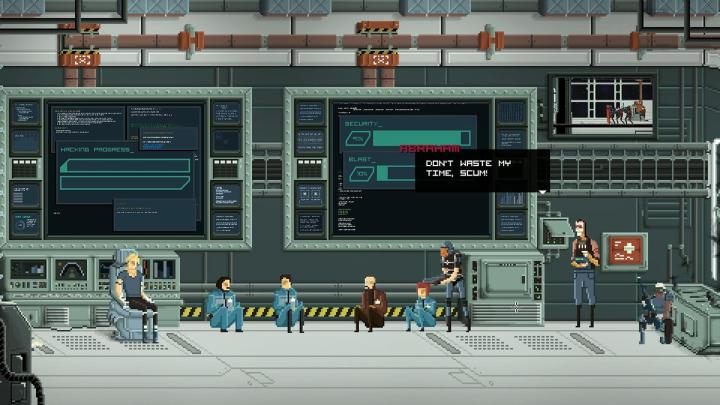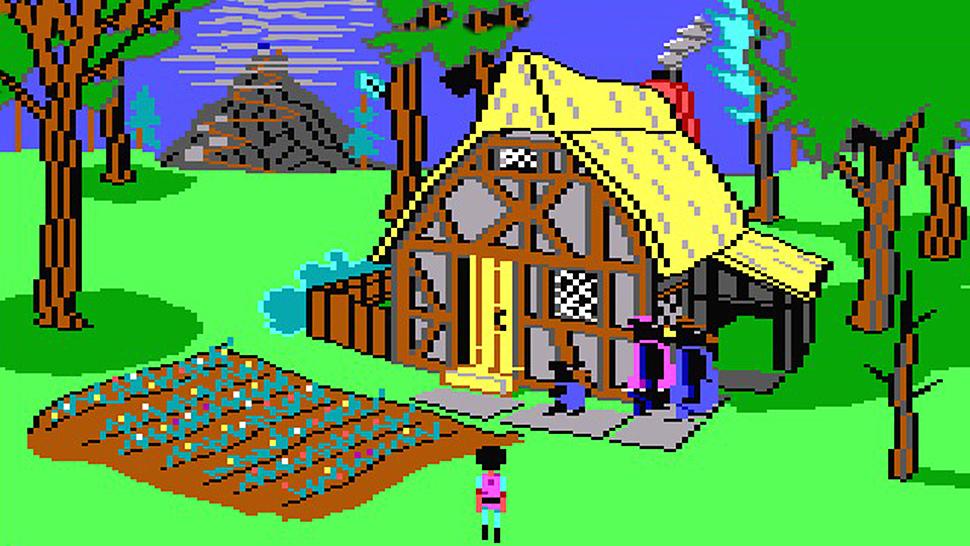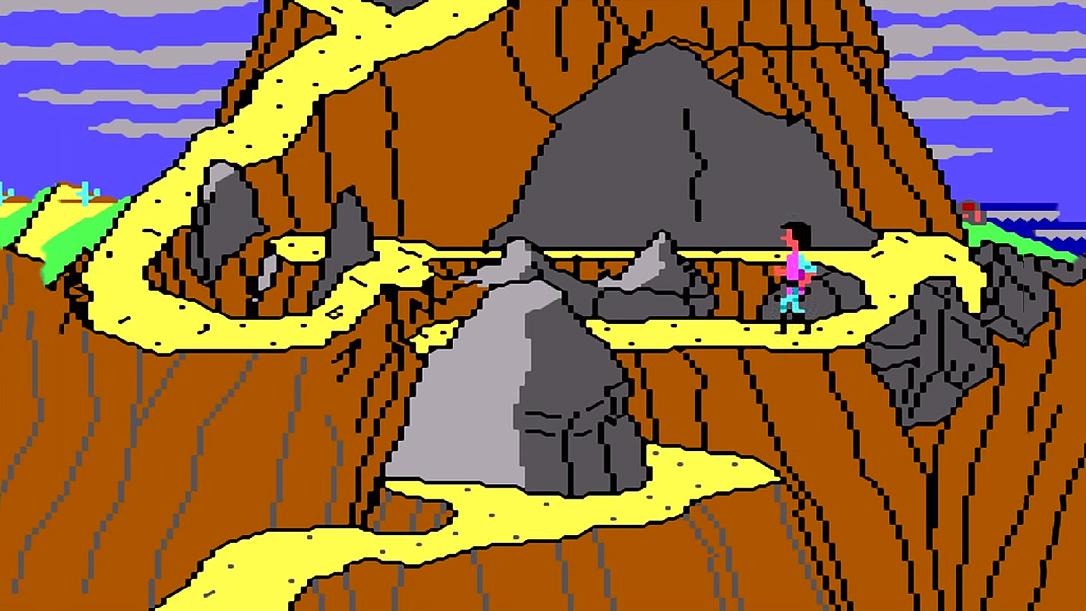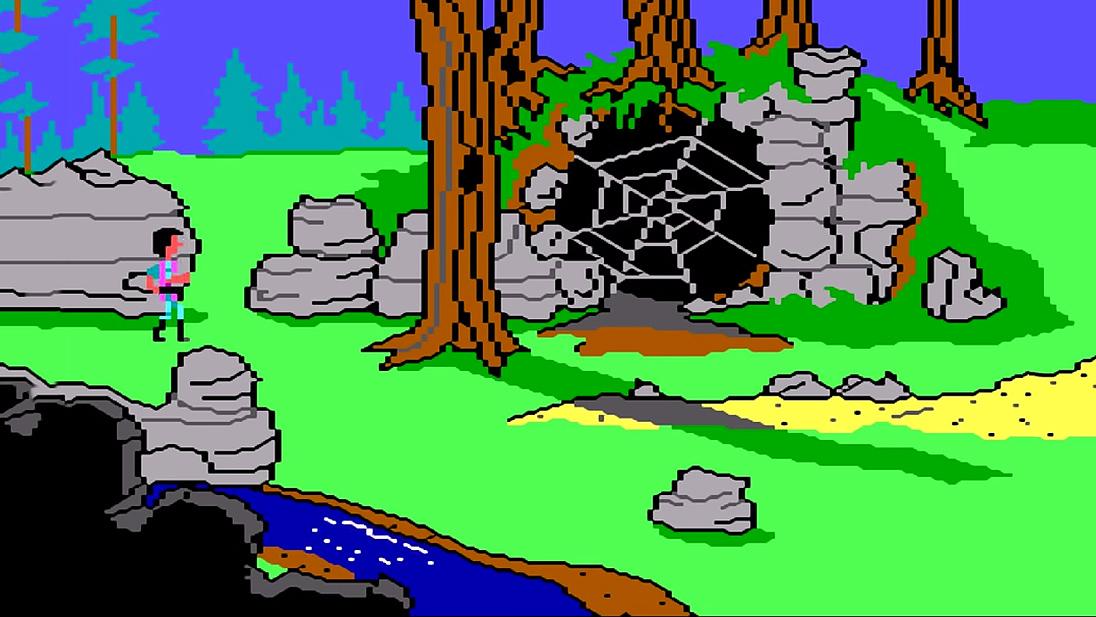
My only reward was an increasingly bizarre array of deaths.
I was probably eight years old when I dove headfirst into King’s Quest III on our creaky old IBM with its 286 processor, EGA graphics, and two whole floppy disc drives. It was a beast of a computer in its own way. Higher-end VGA graphics were still a few months away when my mother bought that machine, so it was the cutting edge of PC gaming technology for the time.
I threw myself at that stupid wizard’s traps for weeks and weeks – this was before the age of Internet solutions, mind you – and my only reward was an increasingly bizarre array of deaths. A brief rundown:
- I was zapped into ashes
- I was eaten by bears
- I was eaten by a giant spider
- I was eaten by a shark
- I was eaten by a fish (while turned into a fly)
- I drowned
- I was liquefied inside a tree
- I was turned into stone after looking at Medusa
- I was turned into stone after Medusa touched me
- I turned myself into a cat
- I was thrown out of a tree to my death
- I was poisoned by toadstool
- I was poisoned by nightshade
- I was poisoned by a cookie
- I was poisoned by cookie-laced porridge
- I got lost in the desert and died of heatstroke
- I was run through by a sharp cutlass
- I slipped on that wretched black cat so many times
- Seriously, that cat is just the worst
- I disappeared myself into oblivion
- I fell to my death multiple times, from multiple elevated locations
For all of that effort, I never did escape from Llewdor, not until I returned to the game many years later. I just died and died and died some more. And I loved every second of it.
I thought a lot about King’s Quest III as I played Deconstructeam’s newly released Gods Will Be Watching. The two games feel connected on an almost genetic level, thanks in large part to the newer title’s lo-fi stylings and rudimentary interface. That’s not the only reason though.
Gods presents players with a series of seeming no-win scenarios. It’s not immediately obvious the first time you sit down, but it plays out in a turn-based manner. Each order you give advances time by one unit, which subsequently causes any number of things to happen.
You’re one member of a group that’s infiltrated a government facility with a mission to hack the central mainframe.
I’ve failed that first scenario so many times that it’s become comical. The game’s systems make sense. Gods Will Be Watching is not so much an adventure game as it is a time management challenge, a series of plates that need to keep spinning lest they all fall and shatter.
Bully a hostage too much and he or she might make a run for it. Let them get too calm and they’ll rise up against you. Let the guards get too close and they’ll toss a flashbang into the room. Lose track of the mainframe’s security and you could get locked out of the system completely. These incidents either speed along your failure or trigger it instantly. The plates topple very easily if you’re not careful.
Seeing the Game Over screen again and again, scores of times now, should make me feel frustrated, right? I should be completely fed up with the difficulty of Gods’ careful balancing act. That’s not the case though. It just brings me back to King’s Quest III.
It’s a wonderful discovery, finding so much fun in repeated failure. The process of experimentation in Gods Will Be Watching is thrilling. Modern games so frequently signpost everything, an understandable bid for accessibility that sacrifices complexity for a surer sell with the mainstream. People who play games want to feel like they’re winning. But sometimes that comes at the expense of finding joy in the playing.
That’s where Gods Will Be Watching takes a stand. No, you cannot have an easy victory. You cannot have a traditional save system. You might click in the wrong spot and lose hours of progress in a scenario purely by accident (have I mentioned how much I hate that damn cat?). BUT… you can have fun. You can appreciate the ridiculousness of trying desperately to survive a no-win situation. You can chuckle at yourself for failing to keep all of those plates spinning during the equivalent of a 10.0 Richter scale earthquake.
This was supposed to be a capital-R Review of Gods Will Be Watching, complete with a score, with highs/lows, with all that jazz you’d want to measure before making a purchase. I can’t give you that. I haven’t seen enough of the game to feel comfortable doing so.
But I can tell you that Deconstructeam’s efforts feel like a success. Gods Will Be Watching isn’t a forgiving experience, and it’s not one you’ll win easily, or without some manner of sacrifice, even if it’s just your personal time. You might never win it. Or you might return to it in 10 years and take it all down, like I eventually did with Llewdor in my 20s. But it’s a whole lot of fun to fail, fail, and fail again, even if you never quite manage to fail better.









